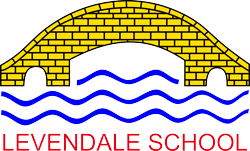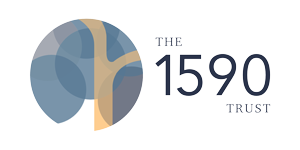PSHE
Intent
Our curriculum is designed to meet and address the needs of the children who attend our school. It is ambitious, inclusive, broad and balanced. It is designed to provide a progression of knowledge, skills and vocabulary with clear end points, at the end of key phases in school. The threads ‘Be Ready, Be Respectful and Be Safe’ provide the intent of our curriculum design and are implemented throughout PSHE and RSE.
Implementation
From September 2020 RSE (Relationships and Sex Education) became a statutory requirement for all schools to teach. This covers a range of aspects including children’s physical, mental and emotional wellbeing. This will be taught alongside and within PSHE (Personal, Social Health and Economic) lessons. Our PSHE curriculum is a Cohesive, Creative PSHE Programme that includes all of the aspects of RSE.
PSHE prepares children for life in modern Britain today. It also helps pupils develop and apply skills and attitudes to allow them to become full and active citizens in our wider global community. Our programme is taught through 3 core themes: Health and Well-being, Relationships and Living in the wider world. This programme allows gradual progress throughout the year groups, building upon the skills taught in previous years.
The Statutory Guidance for Relationships Education, Relationships and Sex Education (RSE) and Health Education states that, by the end of primary school, pupils should know:
| Mental wellbeing | internet safety and harms | Physical health and fitness | Healthy eating | Drugs, alcohol and tobacco | Health and prevention | Basic first aid | Changing adolescent body |
| That mental wellbeing is a normal part of daily life, in the same way as physical health. That there is a normal range of emotions (e.g. happiness, sadness, anger, fear, surprise, nervousness) and scale of emotions that all humans experience in relation to different experiences and situations. | That for most people the internet is an integral part of life and has many benefits. About the benefits of rationing time spent online, the risks of excessive time spent on electronic devices and the impact of positive and negative content online on their own and others’ mental and physical wellbeing. How to consider the effect of their online actions on others and know how to recognise and display respectful behaviour online and the importance of keeping personal information private. Why social media, some computer games and online gaming, for example, are age restricted. That the internet can also be a negative place where online abuse, trolling, bullying and harassment can take place, which can have a negative impact on mental health. How to be a discerning consumer of information online including understanding that information, including that from search engines, is ranked, selected and targeted. Where and how to report concerns and get support with issues online. | The characteristics and mental and physical benefits of an active lifestyle. The importance of building regular exercise into daily and weekly routines and how to achieve this; for example walking or cycling to school, a daily active mile or other forms of regular, vigorous exercise. The risks associated with an inactive lifestyle (including obesity). How and when to seek support including which adults to speak to in school if they are worried about their health.characteristics and mental and physical benefits of an active lifestyle. The importance of building regular exercise into daily and weekly routines and how to achieve this; for example walking or cycling to school, a daily active mile or other forms of regular, vigorous exercise. The risks associated with an inactive lifestyle (including obesity). How and when to seek support including which adults to speak to in school if they are worried about their health. | What constitutes a healthy diet (including understanding calories and other nutritional content). The principles of planning and preparing a range of healthy meals. The characteristics of a poor diet and risks associated with unhealthy eating (including, for example, obesity and tooth decay) and other behaviours (e.g. the impact of alcohol on diet or health). | The facts about legal and illegal harmful substances and associated risks, including smoking, alcohol use and drug-taking. | How to recognise early signs of physical illness, such as weight loss, or unexplained changes to the body. About safe and unsafe exposure to the sun, and how to reduce the risk of sun damage, including skin cancer. The importance of sufficient good quality sleep for good health and that a lack of sleep can affect weight, mood and ability to learn. About dental health and the benefits of good oral hygiene and dental flossing, including regular check-ups at the dentist. About personal hygiene and germs including bacteria, viruses, how they are spread and treated, and the importance of handwashing. The facts and science relating to allergies, immunisation and vaccination. | How to make a clear and efficient call to emergency services if necessary. Concepts of basic first-aid, for example dealing with common injuries, including head injuries. | Key facts about puberty and the changing adolescent body, particularly from age 9 through to age 11, including physical and emotional changes. About menstrual wellbeing including the key facts about the menstrual cycle. |
Impact
At Levendale Primary School, children will have the knowledge and skills to enable them to:
- understand the importance of looking after their physical and mental health
- develop good relationships and long-lasting friendships with others
- develop the skills required to contribute to and succeed in the wider world.

